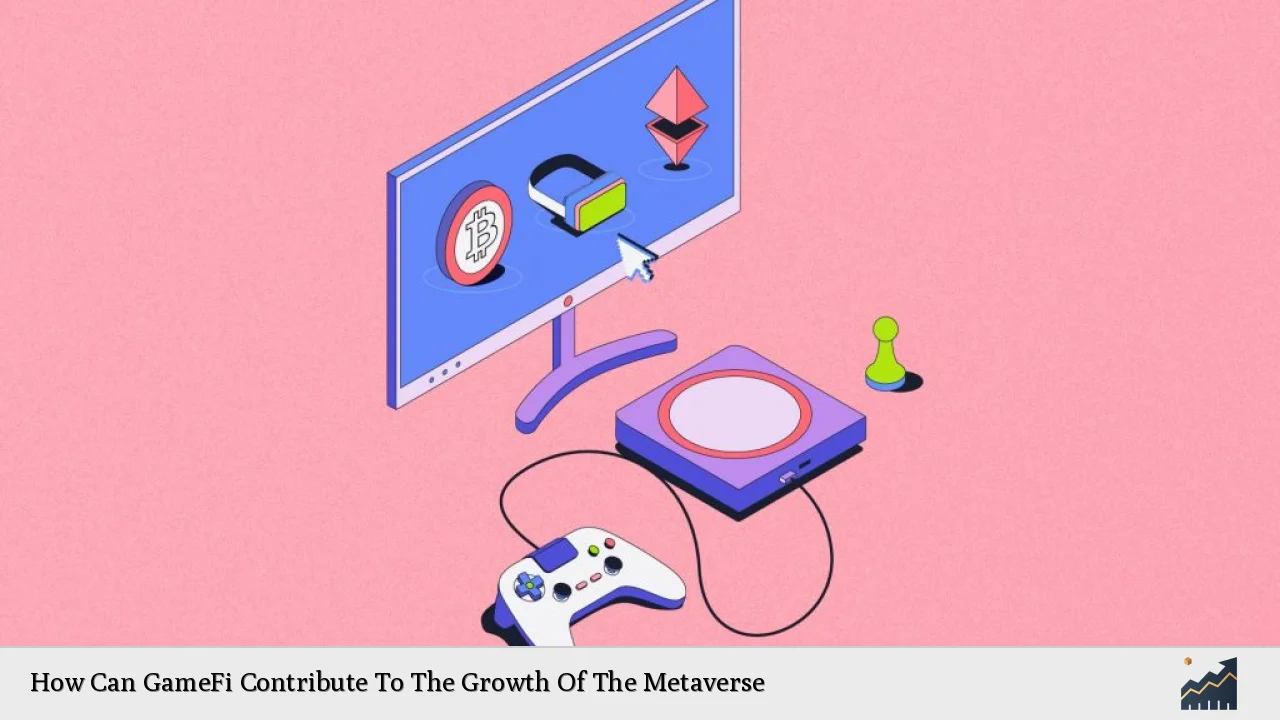The convergence of gaming and finance, known as GameFi, is playing a pivotal role in the expansion of the metaverse—a collective virtual shared space created by the convergence of virtually enhanced physical reality and physically persistent virtual reality. GameFi integrates decentralized finance (DeFi) principles into gaming, enabling players to earn, trade, and invest using cryptocurrencies and non-fungible tokens (NFTs). This innovative approach not only enhances user engagement but also fosters economic ecosystems that can significantly contribute to the metaverse’s growth.
| Key Concept | Description/Impact |
|---|---|
| Economic Incentives | GameFi introduces play-to-earn models that allow players to earn real-world value through gameplay, encouraging greater participation in the metaverse. |
| Digital Ownership | Players have true ownership of in-game assets through NFTs, fostering a sense of value and investment in virtual economies. |
| Interoperability | GameFi promotes interoperability among different platforms, allowing assets to be transferred and utilized across various games and environments. |
| Community Engagement | Decentralized governance models empower players to influence game development and economic structures, enhancing community involvement. |
| Investment Opportunities | The growth of GameFi attracts investors looking for new opportunities in blockchain technology and gaming, driving further innovation. |
Market Analysis and Trends
The GameFi market has witnessed explosive growth over recent years. As of 2023, the global GameFi market was valued at approximately $9.6 billion and is projected to grow at a compound annual growth rate (CAGR) of 25.4%, reaching around $92.31 billion by 2033. This growth is driven by increasing adoption of blockchain technology and decentralized finance within gaming environments.
Key Statistics
- The number of daily active users (DAU) in the GameFi sector reached 4.5 million as of late 2024.
- Major blockchain platforms like BNB Chain and Ethereum are leading the charge with significant transaction volumes.
- Despite fluctuations, GameFi funding surged to $651 million in 2024, indicating strong investor interest.
The integration of GameFi into the metaverse is not merely a trend; it represents a fundamental shift in how digital economies operate. Players are no longer passive consumers but active participants who can monetize their skills and time.
Implementation Strategies
To effectively leverage GameFi for metaverse growth, several strategies can be adopted:
- Developing Engaging Content: Creating immersive experiences that combine entertainment with financial incentives will attract more users.
- Enhancing Interoperability: Ensuring that assets can move freely between different games and platforms will enhance user experience and retention.
- Incorporating DeFi Elements: Integrating features such as yield farming and staking within games can provide additional financial benefits to players.
- Building Strong Communities: Fostering decentralized governance allows players to have a say in game development, enhancing loyalty and investment in the ecosystem.
Risk Considerations
While the potential for growth is significant, there are inherent risks associated with GameFi:
- Market Volatility: The crypto market is notoriously volatile, which can affect the value of in-game assets.
- Regulatory Challenges: As governments begin to scrutinize cryptocurrencies more closely, regulatory changes could impact GameFi operations.
- High Failure Rate: Many GameFi projects do not succeed; reports indicate that approximately 90% of projects may fail, leading to potential losses for investors.
Investors should conduct thorough due diligence before committing capital to GameFi projects.
Regulatory Aspects
Regulatory frameworks surrounding cryptocurrencies and blockchain technology are still evolving. In many jurisdictions, there is uncertainty regarding the classification of NFTs and cryptocurrencies as securities or commodities. This ambiguity can lead to compliance challenges for GameFi developers.
Key regulatory considerations include:
- Securities Laws: Understanding whether tokens or NFTs fall under securities regulations is crucial for compliance.
- Consumer Protection: Regulations aimed at protecting consumers from fraud or misrepresentation will impact how GameFi platforms operate.
- Tax Implications: The tax treatment of cryptocurrency transactions varies by region, affecting both players and developers.
Future Outlook
The future of GameFi within the metaverse appears promising. As technology continues to evolve, we can expect:
- Increased Adoption: More traditional gaming companies are likely to enter the space, bringing with them established user bases and capital.
- Technological Innovations: Advancements in AI and machine learning will enhance game mechanics and user experiences.
- Greater Financial Integration: The blending of gaming with financial services will create new revenue streams for developers and players alike.
Overall, GameFi is positioned not just as a component but as a cornerstone of the metaverse’s economic structure.
Frequently Asked Questions About How Can GameFi Contribute To The Growth Of The Metaverse
- What is GameFi?
GameFi refers to the integration of gaming with decentralized finance (DeFi), allowing players to earn cryptocurrencies or NFTs through gameplay. - How does GameFi enhance player engagement?
By providing financial incentives through play-to-earn models, players are more likely to engage deeply with games. - What role do NFTs play in GameFi?
NFTs enable true ownership of digital assets within games, allowing players to buy, sell, or trade these assets outside the game environment. - Are there risks associated with investing in GameFi?
Yes, risks include market volatility, regulatory challenges, and high project failure rates. - How can developers ensure compliance with regulations?
Developers should stay informed about local laws regarding cryptocurrencies and seek legal advice when necessary. - What is the future outlook for GameFi?
The future looks bright with expected technological advancements and increased adoption from traditional gaming companies. - How does interoperability benefit users?
Interoperability allows users to transfer assets across different games seamlessly, enhancing their overall experience. - What investment opportunities exist within GameFi?
Investors can explore various avenues including token purchases, NFT investments, or funding new game development projects.
GameFi stands at the forefront of transforming how we perceive gaming economies within the metaverse. By integrating financial mechanisms into gameplay while fostering community engagement and innovation, it paves the way for a robust digital economy that promises significant returns for both players and investors alike.

